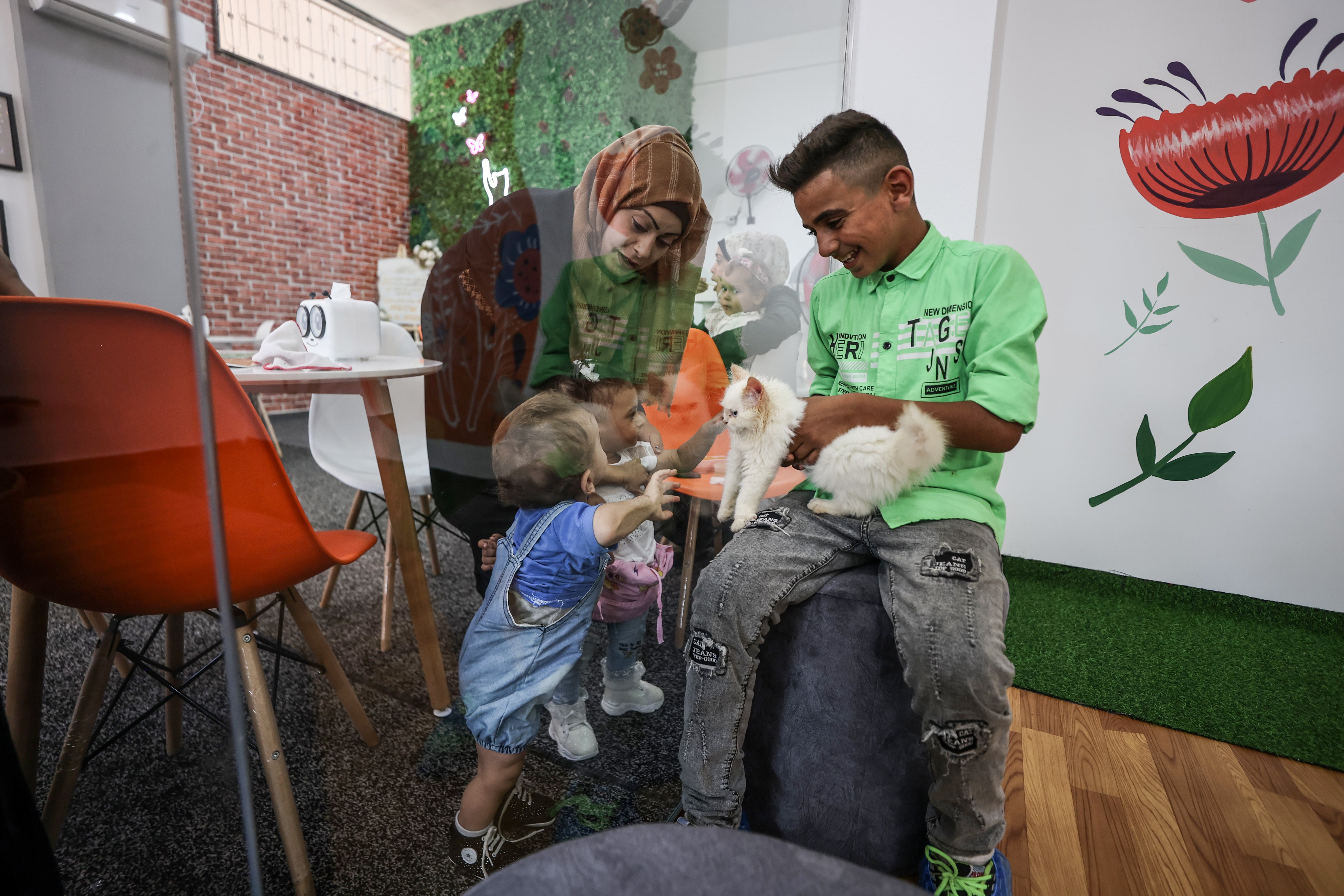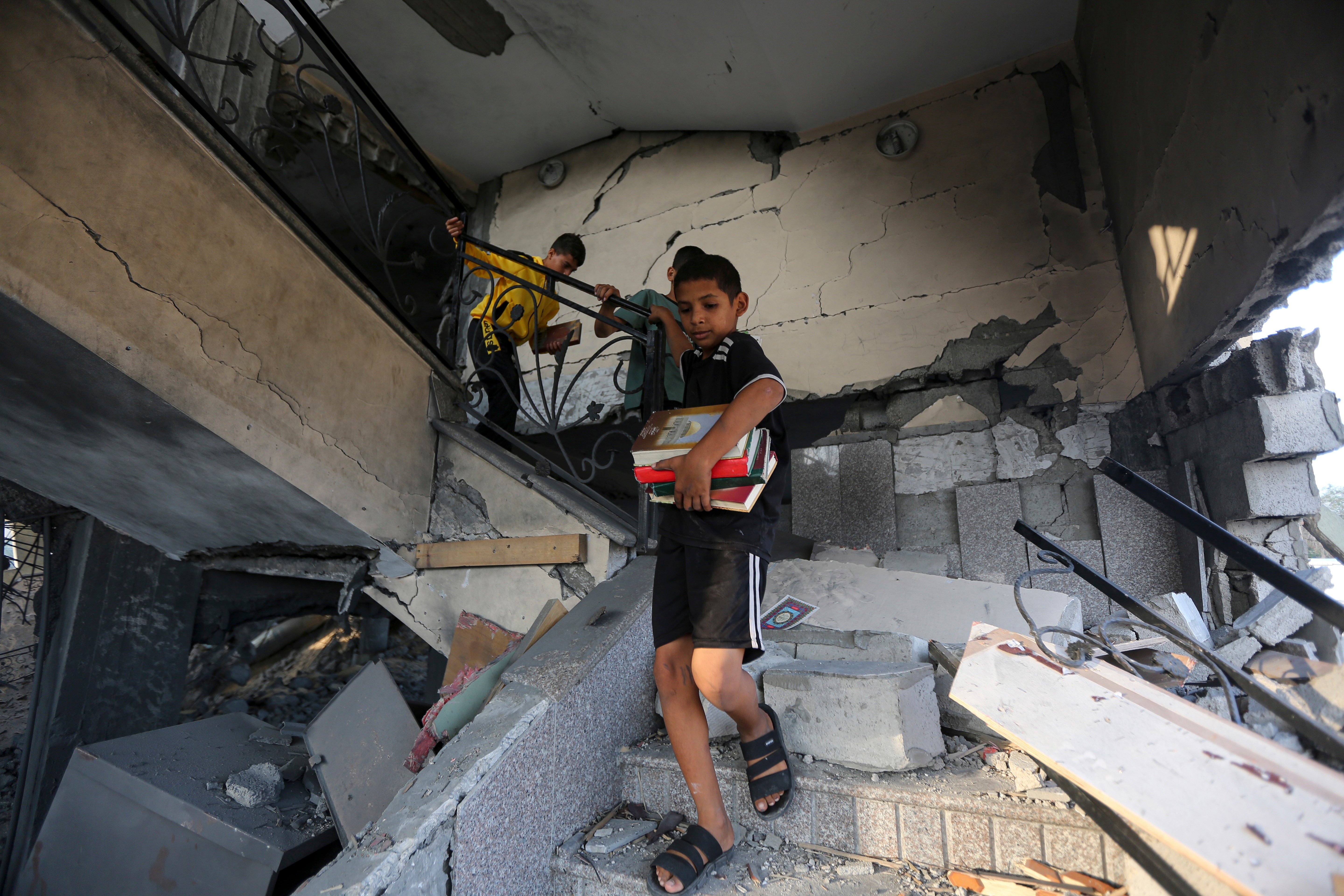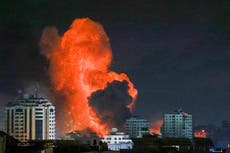‘Forty per cent of the people here are kids’: British doctor in Gaza hospital says system ‘will collapse very soon’
A British doctor who flew out to Palestine yesterday has described the “sheer devastation” at the biggest hospital on the Gaza strip where forty percent of the wounded are children
Your support helps us to tell the story
From reproductive rights to climate change to Big Tech, The Independent is on the ground when the story is developing. Whether it's investigating the financials of Elon Musk's pro-Trump PAC or producing our latest documentary, 'The A Word', which shines a light on the American women fighting for reproductive rights, we know how important it is to parse out the facts from the messaging.
At such a critical moment in US history, we need reporters on the ground. Your donation allows us to keep sending journalists to speak to both sides of the story.
The Independent is trusted by Americans across the entire political spectrum. And unlike many other quality news outlets, we choose not to lock Americans out of our reporting and analysis with paywalls. We believe quality journalism should be available to everyone, paid for by those who can afford it.
Your support makes all the difference.“It’s like a tsunami of wounded people,” says Dr Ghassan Abu-Sittah, a British surgeon who flew out from London yesterday to join humanitarian efforts in the Gaza strip.
Speaking from Al-Shifa, the largest medical hospital and complex in the region, he says he has seen “nothing like the absolute devastation” he has witnessed in the last 72 hours.
The news comes after the UN Secretary General Antonio Guterres said the humanitarian situation would “deteriorate exponentially” following Israel’s declaration of a complete siege of the region which has been under an existing blockade for sixteen years.

Plastic surgeon, Dr Abu-Sittah is also a clinical senior lecturer at Queen Mary, University of London. He says medical staff at Al-Shifa are inundated with injured children, deaths and rapidly dwindling medical equipment.
“As always with the war in Gaza, the percentage of children is much higher than other conflicts because they are being targeted in their homes,” said Dr Abu-Sittah. The average age of the Gazan population is 18, and he says that this is reflected in their patients with up to forty percent of the over 650 people treated at the hospital being children.
He describes a fourteen-year-old girl with 70 per cent of her body including her face burned by explosions and other chemicals used as part of IDF weaponry. “She is unrecognisable. The most common injury we deal with are burns. But we also see alot of blast injuries and shrapnel,” he said.
Other children being treated include a five-year-old with crush injuries, a nine-year-old with facial burns and a fourteen-year-old boy with a compressed open fracture of the skull.
“The boy, with the open fracture, his parents have died. He’s completely on his own. Alot of these kids are now on their own, they were in their homes when they were attacked and they’ve lost their parents. They’re too shocked to speak.”
Last year, a report from Save the Children found that four out of five Gazan children experienced mental health issues including depression and anxiety and that the situation had deteriorated in the four years since their last report.
“It’s not just the kids, the parents are absolutely devastated because so many of them have no homes to go back- they sleep in the grounds and come back to be with the kids,” says Dr Abu-Sittah. “taff are also affected, one of my colleagues just lost ten of their neighbours and their home this morning and they have to come straight back here to work.”

He says supplies such as chlorhexidine- an antiseptic used to treat burns - has run out and staff are using soap and water to wash wounds which increases their likelihood of catching life threatening infections. Other supplies running out include orthopedic equipment such as plates and screws.
“All of this is consumed at an amazing rate for multiple wounded patients who need daily dressings,” he continues. “The system was already overwhelmed because of the siege and now it’s just so much worse.”
Dr Abu-Sittah who has experienced multiple instances of war in Gaza including the 2009, 2012, 2014 and 2021 conflicts says: “2014 was like a meat grinder. But, I’ve never seen anything like this in all the years I’ve worked, just the sheer numbers in only three days. Unless the humanitarian corridor is opened the system will collapse very soon.”
In addition to hospitals overstretched with demand, he says there is widespread homelessness after people have been displaced following the destruction of their homes. “The problem is where do you send them? There’s nowhere to send these people who have come in because they were bombed at home. It’s like a refugee camp.”
Dr Abu-Sittah who has three children of his own said that one of his sons is completing his GCSEs this year and he feels “guilt” for being away. “It’s a difficult decision, but in order to make peace with yourself, you have to do what you think is right. It’s more torture watching it on TV.”
He says he is pessimistic about the future. “Everyone we have seen has been a civilian. I’m worried that this is going to be drawn out and absolutely devastating beyond anything I’ve ever seen in my life. There is a sense that they have been given a carte blanche to do the unimaginable here in Gaza.”
The UN human rights chief has condemned the Israeli siege of Gaza and the taking of hostages by Hamas.







Join our commenting forum
Join thought-provoking conversations, follow other Independent readers and see their replies
Comments